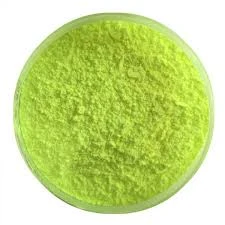Water and Wastewater Treatment Chemicals An Overview
Water is a vital resource for life on Earth. However, with increasing industrial activities, urbanization, and population growth, the challenge of ensuring clean and safe water has become more pressing than ever. Water and wastewater treatment chemicals play a crucial role in this process, acting as essential tools for purifying water, removing harmful contaminants, and ensuring compliance with environmental regulations.
Water treatment encompasses the processes applied to make water suitable for a desired end-use, such as drinking, fishing, swimming, and industrial processes. Conversely, wastewater treatment involves the removal of contaminants from wastewater, making it safe for release into the environment or for reuse. The chemicals used in these processes are diverse, each serving unique functions to address different contaminants.
One of the primary categories of water treatment chemicals is coagulants, such as aluminum sulfate and ferric chloride. These substances help aggregate small particles suspended in the water, forming larger clusters, or flocs, which can then be easily removed through sedimentation or filtration. This step is crucial in the treatment process, as it significantly improves the water's clarity and quality.
Another important class of chemicals is disinfectants. Chlorine, ozone, and ultraviolet (UV) light are commonly used to eliminate pathogens and harmful microorganisms present in water and wastewater. Chlorination has been a widely adopted method for decades due to its effectiveness and cost efficiency. However, there are concerns about the formation of disinfection by-products (DBPs) when chlorine reacts with organic material in water. As a result, alternative disinfection methods, such as ozonation and UV treatment, are gaining popularity, especially for drinking water treatment.
water and wastewater treatment chemicals

Flocculants are also utilized in both water and wastewater treatment. These chemicals help to enhance the flocculation process initiated by coagulants, improving the settling of solids and ensuring higher efficiency in the removal of suspended particles. Polymers are the most common flocculants, and they can be tailored to specific applications, making them highly effective in various treatment circumstances.
In addition to these chemicals, pH adjusters are critical because the efficiency of many treatment processes is pH-dependent. Chemicals like sulfuric acid and sodium hydroxide are used to maintain the desired pH levels and optimize the performance of coagulants and disinfectants. Ensuring the right pH balance is essential, as too low or too high of a pH can hinder treatment processes or lead to equipment corrosion.
Furthermore, the treatment of wastewater often requires the use of advanced chemicals for specific contaminants. For example, phosphorus removal chemicals, such as aluminum or iron salts, are essential in preventing nutrient pollution in water bodies. Nutrient overload can lead to algal blooms, which have harmful effects on aquatic ecosystems and water quality.
The management of water and wastewater treatment chemicals is also an area of focus due to the potential environmental impact of chemical residues. Thus, there is a growing trend toward the use of eco-friendly alternatives and the development of sustainable practices that minimize harmful by-products.
In conclusion, water and wastewater treatment chemicals are indispensable in the quest for clean water and environmental preservation. Their diverse functions, from coagulation and disinfection to nutrient removal, underscore their significance in modern water treatment systems. As we continue to face challenges related to water quality and supply, ongoing research and innovation in treatment chemicals will be essential for meeting the needs of a sustainable future. By leveraging the advancements in chemical formulations and their applications, we can enhance our ability to provide safe drinking water and protect our natural water resources.

